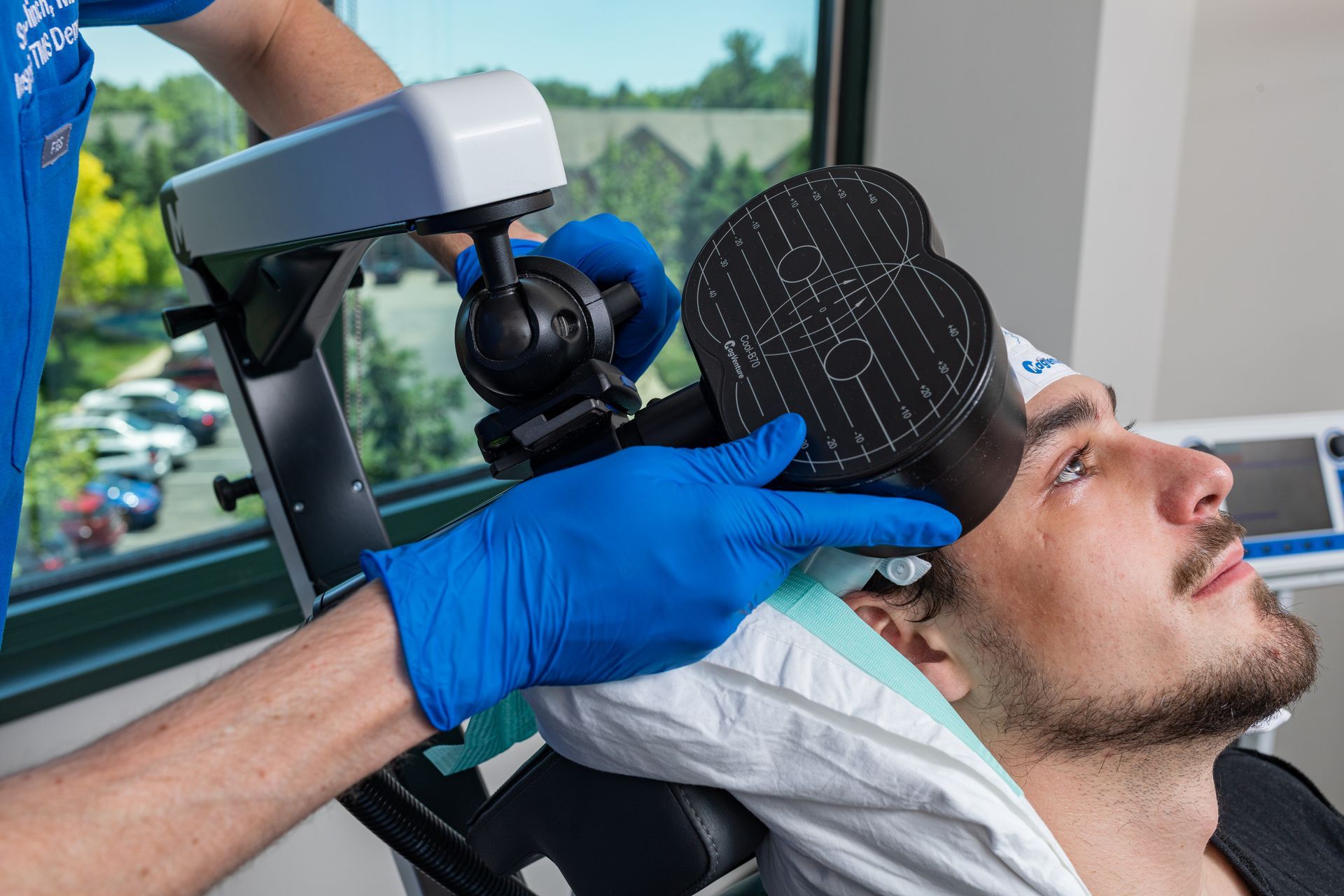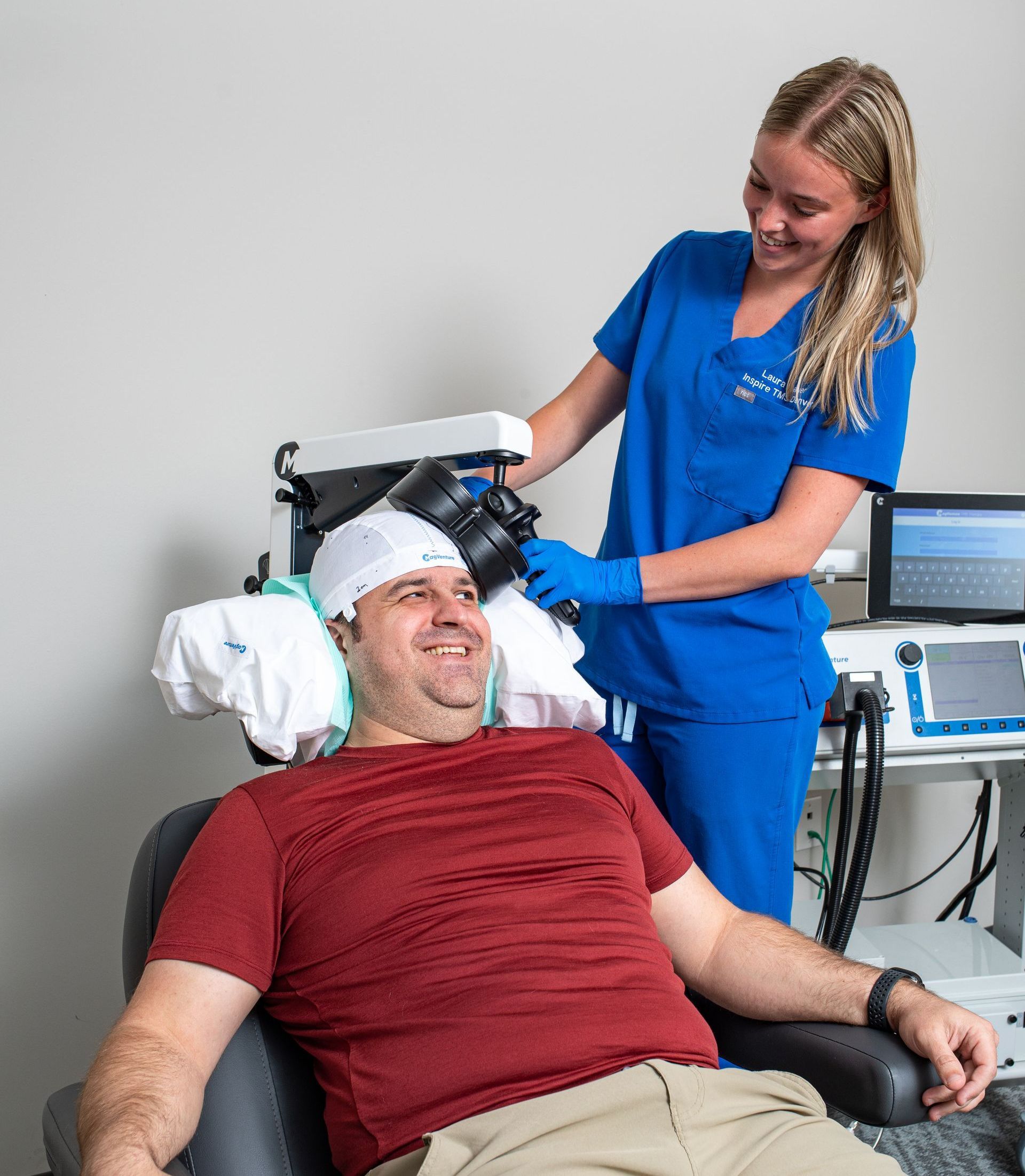Be safe and well-tolerated
TMS For Bipolar
When medication isn’t enough, TMS may help lift the lows.
In
30
Seconds

Bipolar disorder causes intense mood swings between depression and mania.

The depressive episodes can be resistant to standard medications.

While not yet FDA-approved for this use, TMS is a potential option for select patients.

TMS is showing promise for
bipolar depression - especially when other treatments have failed.
What Is Bipolar Disorder?
Bipolar disorder causes dramatic shifts in mood, energy, and activity levels. These cycles can include:
Depressive Episodes
- Low mood, hopelessness, apathy
- Oversleeping or overeating
- Fatigue and difficulty concentrating
- Thoughts of self-harm or suicide
Manic (or Hypomanic) Episodes
- Euphoria or extreme irritability
- Rapid speech, impulsive decisions
- Decreased need for sleep
- Racing thoughts and risky behavior
There are several forms:
- Bipolar I – includes full manic episodes
- Bipolar II – includes hypomania, which is less intense
- Cyclothymia – mild, fluctuating mood shifts


TMS for Bipolar Depression
TMS (Transcranial Magnetic Stimulation) is a non-invasive therapy that uses magnetic pulses to stimulate areas of the brain involved in mood regulation. Although not yet FDA-approved for bipolar depression, early studies suggest it can:


Improve depressive symptoms in treatment-resistant patients

Offer hope where other options have failed
In 2020, the FDA granted Breakthrough Device Designation for evaluating TMS in bipolar depression - a sign of growing clinical promise.
Important Considerations
- TMS for bipolar depression is not FDA-approved at this time (though it has FDA Breakthrough Device Designation).
- Insurance typically does not cover TMS for bipolar depression, but self-pay options are available.
- TMS is generally well-tolerated, but close monitoring is essential to watch for any signs of mood elevation or mania.

Not Sure Where to Start?
Take a quick quiz to get answers about your care options, coverage, and costs - in under 2 minutes.

Is TMS Right for Me?
Find out if TMS is a good fit for your symptoms and treatment history.

Quick 9-question screening

No pressure, no commitment

Personalized feedback

TMS Cost Estimator
Curious about your insurance coverage or out-of-pocket costs?

Coverage check

Self-pay pricing options

Sliding scale

Sliding scale

Talk to a Doctor
Free 10–15 Min Call
Find out if TMS is a good fit for your symptoms and treatment history.

Eligibility & treatment info

Insurance & cost guidance

Personalized care advice
Our shared inspiration is to alleviate mental illness and improve the mental wellbeing of the patients we treat. We respect all backgrounds and cultures and want to hear our patient’s stories to best guide care. During treatment, we reinforce positive wellness practices, help maximize lifestyle modifications, and integrate rTMS therapy into a patient’s overall mental and physical health treatment.
Samuel B. Clinch, M.D
Medical Director

Services & Resources

Us vs Them
What sets Inspire TMS apart from typical TMS providers
Inspire TMS Denver
Sliding Scale Pricing Available
5-day Accelerated TMS Protocol
10–15 min call with Doctor
Focused Exclusively on TMS
>80% Clinic Response Rate
Cost Estimator Tool
15,000+ Treatments Completed
Other Clinics
Fixed Pricing Only
Often Unavailable
Long Wait or Intake Staff Only
Larger Multi-Service Clinics
Unpublished or National Data
No estimator or Guidance
Unknown Volume
Hear What Our Patients are Saying
40+ Five Star Reviews on TMS Therapy In Denver, Colorado
Making TMS Affordable For Everyone
We believe cost should never be a barrier to effective care. That’s why we offer:

Sliding scale pricing for self-pay patients

Coverage with most major insurance providers

Easy access to third-party financing options

Free 10–15 minute consultation to get started
Why Choose Inspire TMS Denver
We combine clinical expertise with a personalized, patient-first approach. From board-certified care and flexible pricing to proven treatment outcomes, we’re here to help you find lasting relief - with support every step of the way.

Affordability Made Simple
Insurance, Financing & Sliding Scale Options

Board-Certified Psychiatrist
Over 10 Years of Clinical Experience

Fast-Track TMS Option
5-Day Protocol for Faster Relief

Proven Patient Outcomes
Success Rates Tracked In-Clinic

Free Doctor Consultation
No Obligation, 10–15 Minute Intro Call

Personalized Care Plans
Tailored TMS Treatment for Every Patient

Your Free Consultation
Call us at 720-446-8675 or complete the form below.
Contact Us
We will get back to you as soon as possible.
Please try again later.

What Happens After I Send My Message?

A team member will confirm your free consultation within one business day

We’ll help you explore if TMS is right for you

You’ll get answers to your questions about treatment, eligibility, and cost







